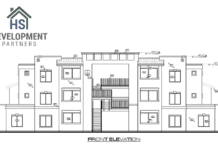
Cue the jokes about the birds and the bees. Well, chickens and bees to be exact. The Sedona City Council will be holding a workshop and public forum on Wednesday, Oct. 10, at 3 p.m. to discuss adding urban agriculture within the updated Land Development Code. The meeting will be for discussion only and no action will be taken at that time.
“When we discussed this issue with the Planning and Zoning Commission, we received a lot of support for the keeping of chickens,” Senior Planner Mike Raber said. “We did not hear as much about beekeeping, but we heard both support for beekeeping and concerns regarding Africanized bees.”
In May, the Sedona Planning and Zoning Commission was asked to consider the following requirements on owning chickens as proposed by staff:
- Be an accessory use in all districts. The principal use of the property must be residential or educational.
- Be limited to larger lots — greater than quarter acre — and/or using a sliding scale for the number of chickens, with a cap on the total number based on lot size.
- Include the potential for a minor Conditional Use Permit.
- Not allow roosters. n Include setbacks for enclosures: Flagstaff requires enclosures be at least 10 feet from the property line. Yavapai County and the City of Cottonwood require 15 feet. Alternatively, there could be a required separation between dwelling units. n Be confined to rear yards. n Not allow commercial use. n Require some type of licensing or permitting.
- Other considerations include specifications on chicken enclosures, ranging areas, food, water, cleanliness, odor control, etc.
- The commission stressed that similar restrictions should be required for those seeking to have beehives on their property, including vertical barriers and warning signs alerting those who may be allergic to bees. The number of chickens and hives was debated on May 15 and is something the commission will vote upon.
“I’m 100 percent in support of enhancing and legitimizing the ability of this community to move in the direction of creating opportunities for urban agriculture,” Vice Chairwoman Kathy Levin said at that meeting. “This includes chickens and bees, with the appropriate standards we’ve offered.”
Based on public comments, Raber said the city is being asked to reconsider both minimum lot sizes for bees, meaning larger lots required and setbacks for hives. In addition, the city is being asked to examine whether the definition of poultry should include more than just chickens — such as guinea hens, turkeys and ducks — the requesting of a comment period for the notification requirements, and a limit on the number of permits.
In terms of when the council may be voting on this issue, Raber said the council will discuss and may provide direction to staff regarding urban agriculture on Oct. 10, but the city is scheduling a public hearing with possible action by the council on the entire draft Land Development Code on Wednesday, Nov. 14, at 3 p.m.




















